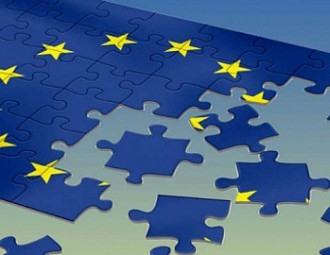Andrei Yahorau: Belarus has chances to influence future construction of European neighborhood policy

It is not only the question of Belarusan government, but also the question of civil society institutes.
Federica Mogherini, the High Representative of the European Union for Foreign Affairs and Security Policy and Vice-President of the European Commission and Johannes Hahn, the Commissioner for European Neighborhood Policy and Enlargement Negotiations started consultations on reviewing European neighborhood policy that will only end in autumn.
“Obviously, the way to cooperation with the EU is open for everyone, including Russia, - stated Federica Mogherini. - Recent developments in the region have increased the challenges we all face: from economic pressures to irregular migration and security threats… We need a strong policy to be able to tackle these issues. We also need to understand better the different aspirations, values and interests of our partners.”
What is the review of neighborhood policy caused by? It is possible to establish neighborly relations with Russia in the current situation? What can Belarus get from reforming the neighborhood policy?
“EuroBelarus” Information Service asks these questions to Andrei Yahorau, co-chair of the Eastern Partnership Civil Society Forum, the Director of the Center for European Transformation.
- Why is the European Union reviewing its neighborhood policy?
- The review of neighborhood policy is caused by the regular cycles of reformations within the EU policy. The former review took place in 2011. Now the membership of the European Commission has changed, a new budget plan has been approved, new financial expenses have appeared. The crisis of the Eastern Partnership and neighborhood policy is very obvious now due to the Ukrainian crisis. That is why now it’s due time to review and reform the current neighborhood policy.
- The EU doesn’t exclude the development of neighborly relations with Russia, which is also EU’s neighbor. Is it possible in the situation of the war with Ukraine and in its person with the whole Europe?
- European politics is dominated by the direction that was first formulated in Germany. The principle “Russia first” started regulating Germany’s external politics since the times of Willy Brandt, who believes Russia to be a priority partner. Now European politics has no other conceptual grounds to review this principle. Despite the fact that Russia creates the problem, at the same time Russia is thought to be a part of resolution of this problem.
Europe has no clear position regarding Russia. That is why now different attempts are being made to draw Russia into a normal cooperation with Europe that will help to clear the air in the region.
Personally I find this concept to be quite utopic, even though now new concepts appeared in Europe.
- Will the revision help to increase efficiency of the neighborhood policy with the post-Soviet countries that are asking EU’s help and at the same time hold on to Russia being politically and economically dependent on it?
- The EU needs to reformate its policy and elaborate new format of relations. Time came to admit the influence of geopolitical factor on European policy. The EU earlier has been denying this factor; however, it defines the relationship of the EU with its countries-neighbors. We need to take into account contradictions between the EU and Russia that are influencing the relations in the region. There is hope that the new concept of neighborhood policy will take into account that apart from the EU post-Soviet countries have one more neighbor – Russia. That is why the EU will try to create a new concept more flexible and quick so that to be able to react at the situation in the region more efficiently.
When the EU is elaborating a new concept it is trying to make neighborhood policy more acceptable for the countries-neighbors themselves. It is a question of such forms of cooperation that are, first of all, interesting for these countries, that will help to avoid repetition of reforms and lead the policy that will be useful for the countries themselves.
Time will show how successful it is.
- What prospects can correction of neighborhood policy have for Belarus?
- The process of reviewing the neighborhood policy is very long: consultations have started on March 4, but will only end this autumn. We can only guess what will the final view of the new concept of neighborhood policy be. Will conceptual changes in EU’s politics really happen or will the EU recede to traditional principles of conventions, the principle “more for more”?
Belarus has a chance to influence the future construction of European neighborhood policy. When I speak about Belarus, I don’t mean only Belarusan government, but civil society institutes as well.
-
03.01
-
07.10
-
22.09
-
17.08
-
12.08
-
30.09








































